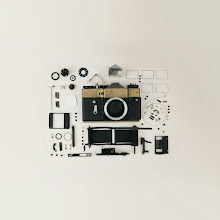A period is when blood and unwanted tissue comes out through a girl’s vagina. It is a sign that she is getting close to the end of puberty. Puberty is the transition of your body from that of a child to that of an adult.
Periods have a lot to teach us. Here are some frequently asked questions by kids.
When do the majority of girls get their period?
Most girls get their first period around the age of 12. However, obtaining it at any age between 10 and 15 is acceptable. Every girl's body operates on its own timetable.
How Will I Know When My First Period Is coming?
There are various indications that a girl's menstruation will begin soon. These are some examples:
- She's been wearing a bra for a few years.
- She has hair in her private areas and under her arms.
- Her vagina is emitting a transparent, stringy liquid (called discharge).
What Causes Periods in Women?
A period is caused by changes in the body's hormones. Hormones communicate with the body. These hormones induce the uterus (or womb) lining to thicken.
This prepares the uterus for an egg (from the mother) and sperm (from the father) to attach and grow into a baby.
The Friendly Guide to Periods for Girls
If the lady is unable to conceive, the lining breaks down and bleeds. Every month, the same thing happens. As a result, most girls and women have their periods once a month.
When menstruation begins, do periods occur regularly?
It is likely that a girl's period will not come on a regular basis for the first few years after she begins her period. At first, this is normal. A girl's periods should be once a month by roughly 2–3 years following her first period.
Periods: How Long Do They Last?
Periods often last 5 days. A period, on the other hand, might be shorter or longer.
How Often Does a Period Occur?
Periods normally occur once a month. But some girls get their periods around every 3 weeks. Others only have a period every 6 weeks or so.
Should I Use a Menstrual Cup, Pad, or Tampon?
There are a few ways of dealing with period bleeding. You may need to explore a little to figure out what works best for you. Some girls use only one strategy, while others switch between several methods.
When most girls first get their period, they use a pad. Pads are composed of cotton and come in a variety of sizes and forms. They are attached to the underpants using sticky strips.
Many girls prefer to use tampons rather than pads, especially while participating in sports like swimming. Tampons are cotton plugs that women insert into their vagina.
Get a Free delivery of Tampons and Pads
Most tampons come with an applicator that guides the tampon into position. The blood is absorbed by the tampon. If you keep a tampon in for more than 8 hours, you may get toxic shock syndrome, a dangerous illness.
A menstruation cup is preferred by some girls. A girl inserts a menstruation cup into her vagina to use it. The blood is trapped in the cup until she drains it.
The Green Dot Reusable Menstrual Cup for Girls With 40% Off
What is the amount of blood that comes out?
Although it may appear like a lot of blood is lost, a female normally only sheds a few teaspoons of blood during her period. Most girls need to replace their pad, tampon, or menstrual cup three to six times a day.
Is It True That I'll Have Periods the Rest of My Life?
Women cease having periods at the age of 45 to 55. (this is called menopause). During pregnancy, women will not have a period.
What Is PMS and How Does It Affect You?
PMS (premenstrual syndrome) is a condition in which a woman has mental and physical symptoms just before or during her period. A woman suffering from PMS might
- be in a bad mood
- feel sad or scared in a different way than usual
- feel bloated
- gets pimples
Do All Girls Get Period Cramps?
Many girls experience cramps during their period, particularly in the first few days. A warm heating pad on the abdomen and pain killers might help if the cramps are intense.
Looking Ahead
Periods are a healthy and normal part of a woman's life. They shouldn't get in the way of getting some exercise, having a good time, and living life to the fullest. Ask your doctor, a parent, a health teacher, a school nurse, or an older sister if you have any questions regarding your periods.












0 Comments